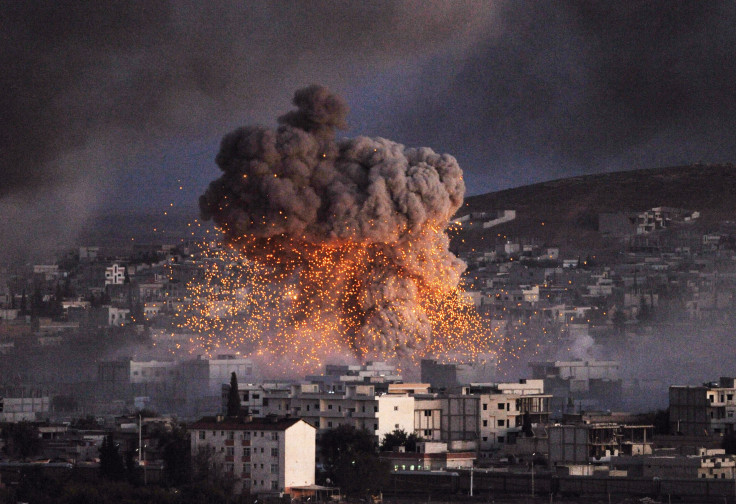Syria Crisis: US weighs tougher response to Russia

Obama administration officials have begun considering tougher responses to the Russian-backed Syrian government assault on Aleppo, including military options, as rising tensions with Moscow diminish hopes for diplomatic solutions from the Middle East to Ukraine and cyberspace, U.S. officials said on Wednesday.
The new discussions were being held at "staff level," and have yet to produce any recommendations to President Barack Obama, who has resisted ordering military action against Syrian President Bashar al-Assad in the country's multisided civil war.
But the deliberations coincide with Secretary of State John Kerry threatening to halt diplomacy with Russia on Syria and holding Moscow responsible for dropping incendiary bombs on rebel areas of Aleppo, Syria’s largest city. It was the stiffest U.S. warning to the Russians since the Sept. 19 collapse of a truce they jointly brokered.
Even administration advocates of a more muscular U.S. response said on Wednesday that it was not clear what, if anything, the president would do, and that his options "begin at tougher talk," as one official put it.
One official said that before any action could be taken, Washington would first have "follow through on Kerry’s threat and break off talks with the Russians" on Syria.
But the heavy use of Russian airpower in Syria has compounded U.S. distrust of Russian President Vladimir Putin’s geopolitical intentions, not only in the 5-1/2 year civil war, but also in the Ukraine conflict and in what U.S. officials say are Russian-backed cyber attacks on U.S. political targets.
The U.S. officials said the failure of diplomacy in Syria has left the Obama administration no choice but to consider alternatives, most of which involve some use of force and have been examined before but held in abeyance.
These include allowing Gulf allies to supply rebels with more sophisticated weaponry, something considered more likely despite Washington’s opposition to this until now. Another is a U.S. air strike on an Assad air base, viewed as less likely because of the potential for causing Russian casualties, the officials told Reuters, speaking on condition of anonymity.
The options being weighed are limited in number and stop well short of any large-scale commitment of U.S. troops, which Obama, who has only four months left in office, has long rejected, the officials said.
Critics of Obama's policy on Syria have said that his hesitancy to involve troops has allowed Russia to intervene militarily, although Moscow has been influential in Syria for decades. Some foreign policy experts inside and outside the administration said Obama made a mistake in 2012-13 when he did not enforce a "red line" he set against Assad's government's use of chemical weapons.
© Copyright Thomson Reuters 2024. All rights reserved.





















